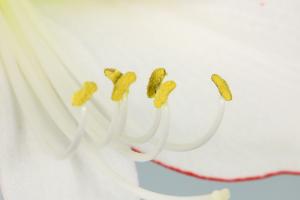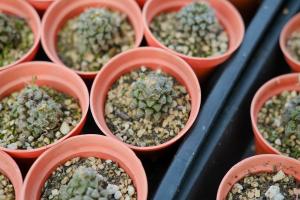What is the Function of a Plant Cell Nucleus?
The nucleus is a central organelle found in all eukaryotic cells, including plant cells. This structure is responsible for important cellular functions and has a crucial role in maintaining life in a plant cell. Let's explore what the nucleus does in a plant cell.
1. DNA Storage and Regulation Processes
The primary function of the nucleus in a plant cell is to store and regulate the genetic material of the cell. The DNA contained within the nucleus carries the entire genetic code for the plant. This code is responsible for directing protein synthesis, cellular growth, and other metabolic processes necessary for life. In order to function properly, this genetic information must be protected and organized, which is why it is stored within the nucleus.
Besides storage, the nucleus plays a vital role in regulating gene expression within the cell. This is achieved through a variety of mechanisms that allow certain genes to be activated or deactivated, depending on the needs of the cell. By controlling which genes are active, the nucleus can influence many aspects of cellular function, including growth, differentiation, and response to environmental stimuli.
2. Ribosomal RNA Synthesis
The plant cell nucleus is also responsible for synthesizing ribosomal RNA (rRNA), which is a crucial component of the ribosomes found within the cell. Ribosomes are responsible for synthesizing the proteins required for all cellular functions. Without functional ribosomes, the plant cell cannot produce the proteins necessary for survival.
The nucleus contains specialized regions called nucleoli, which are responsible for rRNA synthesis. These regions are composed of specialized proteins and RNA molecules that work together to produce rRNA. Once synthesized, rRNA molecules are transported out of the nucleus and into the cytoplasm, where they combine with ribosomal proteins to form functional ribosomes.
3. Cell Division
The final function of the nucleus in a plant cell is to facilitate cell division. During the normal growth and development of a plant, cells must divide in order to produce new tissues and organs. This process is regulated by the nucleus, which contains all of the genetic material necessary to create two new daughter cells.
The nucleus undergoes several changes during the cell division process, including the duplication of DNA and the formation of mitotic spindles. These changes ensure that each daughter cell receives an identical copy of the genetic material found within the original parent cell.
Conclusion
The nucleus is a critical organelle found within all eukaryotic cells, including plant cells. It is responsible for important processes such as DNA storage and regulation, ribosomal RNA synthesis, and cell division. By controlling these processes, the nucleus helps to maintain the overall health of the plant cell and ensure that it can carry out all necessary cellular functions.

 how many times do yo...
how many times do yo... how many planted tre...
how many planted tre... how many pine trees ...
how many pine trees ... how many pecan trees...
how many pecan trees... how many plants comp...
how many plants comp... how many plants can ...
how many plants can ... how many plants and ...
how many plants and ... how many pepper plan...
how many pepper plan...































